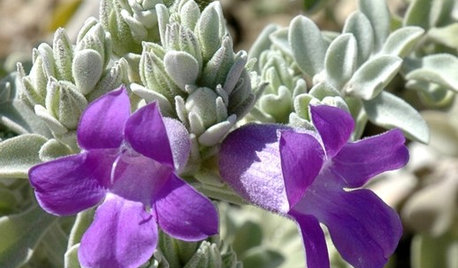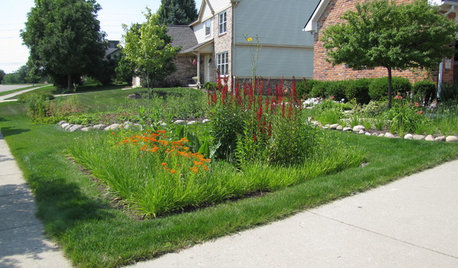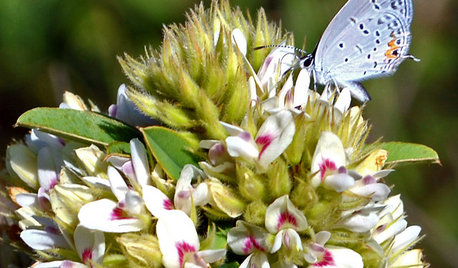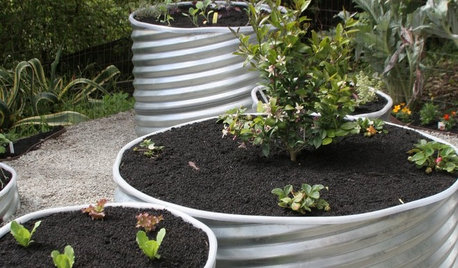Hard garden soil
snappybob
16 years ago
Related Stories

GARDENING GUIDESGreat Design Plant: Try Blue Bells for Blooms in Dry Soil
This shrub’s violet-blue flowers and silvery foliage brighten low-water gardens all year long
Full Story
GARDENING GUIDESGardening Solutions for Heavy Clay Soils
What’s a gardener to do with soil that’s easily compacted and has poor drainage? Find out here
Full Story
GARDENING GUIDESGrow a Beautiful Garden in Alkaline Soil
Got alkaline soil? Learn how to manage it and the many beautiful plants that will thrive in this ‘sweet’ soil
Full Story
FARM YOUR YARDHow to Get Good Soil for Your Edible Garden
The nutrients in your soil feed the plants that feed you. Here are tips on getting it right — just in time for planting season
Full Story
LANDSCAPE DESIGNHow to Shape a Rain Garden and Create the Right Soil for It
Learn how to grade, lay out and amend the soil in your rain garden to support your plants
Full Story
GARDENING GUIDESHow to Stop Worrying and Start Loving Clay Soil
Clay has many more benefits than you might imagine
Full Story
GARDENING GUIDES5 Prairie Wildflowers That Can Heal Your Soil
Get free, organic soil fertilizer with nitrogen-pumping plants that draw pollinators too
Full Story
GARDENING GUIDESHow to Pick a Mulch — and Why Your Soil Wants It
There's more to topdressing than shredded wood. Learn about mulch types, costs and design considerations here
Full Story
GARDENING GUIDESGet the Dirt on Your Garden’s Soil
Understand how your soil supports your plants so you can ensure your garden’s success
Full Story
CONTAINER GARDENSContainer Gardening Basics: The Dirt on Soil
Learn the types of potting soil available and the best mixes to help your containers thrive
Full StoryMore Discussions







bpgreen
dchall_san_antonio
Related Professionals
Bell Gardens Landscape Contractors · Bridgeview Landscape Contractors · Choctaw Landscape Contractors · Columbine Landscape Contractors · Lake Saint Louis Landscape Contractors · Maywood Landscape Contractors · New Cassel Landscape Contractors · Secaucus Landscape Contractors · North Aurora Landscape Contractors · Athens Decks, Patios & Outdoor Enclosures · Brentwood Decks, Patios & Outdoor Enclosures · Hobart Decks, Patios & Outdoor Enclosures · Mitchellville Decks, Patios & Outdoor Enclosures · Roanoke Decks, Patios & Outdoor Enclosures · Saint Louis Park Decks, Patios & Outdoor EnclosuresKimmsr
bob64
snappybobOriginal Author
bob64
melonhedd
Kimmsr
dchall_san_antonio
idaho_gardener
Kimmsr
kqcrna
bryanccfshr
kossetx
Kimmsr
nandina
maryann_____chgo
Kimmsr